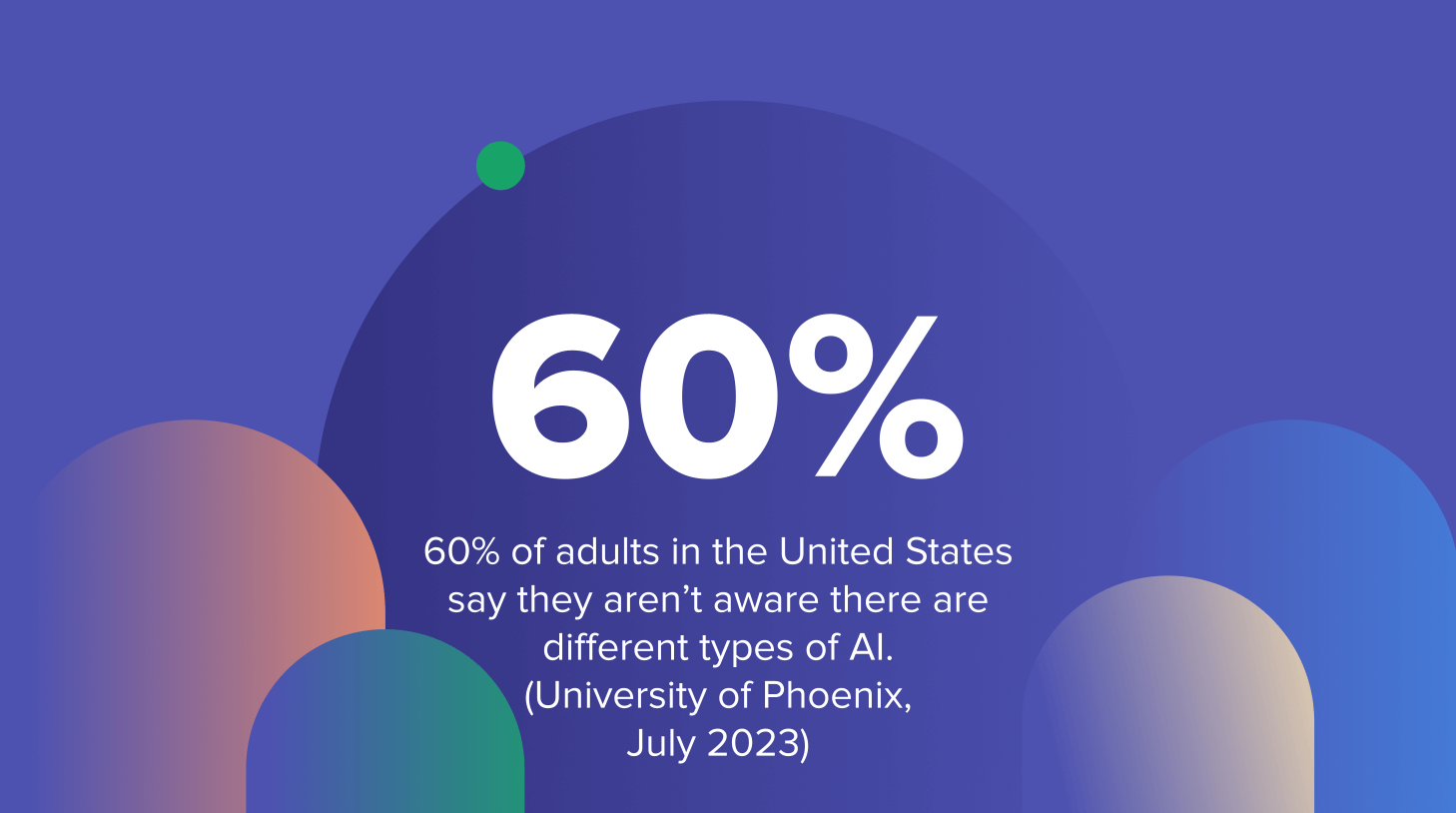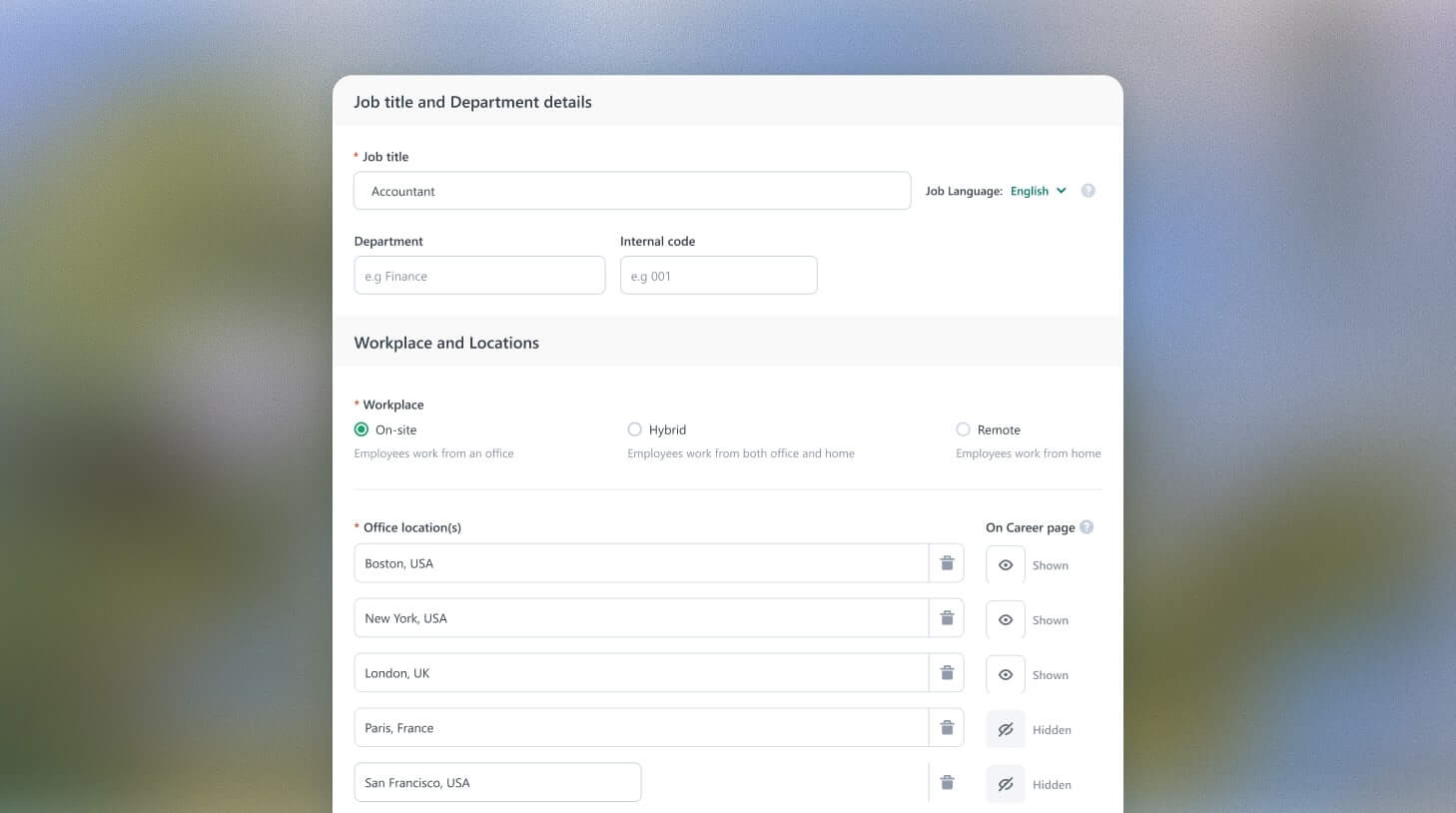AI skills in the workplace: what hiring teams should look for now
What AI skills should be on your radar when hiring? Beyond just data science and programming, discover the significance of UX/UI design, front-end development, and adaptability in successfully integrating AI.

The topic of artificial intelligence (AI) seems to be everywhere, and with that comes the demand to hire individuals that can help organizations enter the fray to leverage these tools effectively to stay competitive.
However, as organizations seek skilled employees to assist their organizations in properly incorporating AI tools into their operating environments, the types of skills and employees needed are broader than one might think. AI is not a single monolith.
There are many tools, categories, and branches of AI which an organization can leverage to solve problems.
As a result, understanding the job to be done and the types of AI tools that exist is an essential prerequisite to help organizations identify the right skills they may need to support their goals.
In fact, a recent survey on AI in the workplace and higher education indicated that understanding the nuances and different capabilities around AI is an opportunity area.

There are several different skill areas that organizations can look into on a global basis that will help staff their teams to support the wave of advancements that companies can benefit from with the AI boom. Let’s look at those now.
1. Data science and programming
Two almost universal skill areas that organizations need to invest in if they want to leverage AI capabilities are in data science and programming, and foundationally these skill areas come from having good mathematical backgrounds.
Data science skills
Ultimately, the majority of AI models are consuming and responding to data in some way shape or form. The stimuli, data format and consumption pattern of the AI model may differ, but the output of AI decisions and responses depend on data.
Individuals skilled in data science, and the principles behind it, are essential to identifying and implementing the right kinds of methods to solve organizational problems using AI.
Programming skills
Equally important are individuals that are skilled in programming languages that support AI such as Python, Julia, and R. To build tools suited to solving the problems organizations have, there is a need for skilled programmers to build and enhance these tools to be aligned to the organization’s goals and consumer’s needs.
Although several off the shelf AI tools and programs can potentially be incorporated into an organization’s infrastructure through application programming interfaces (APIs), many organizations find having talented in-house programmers remains important to customize output and results to match organizational needs.
As organizations specify the type of AI branch or approach they want to lean on to solve their problems, this may require the organization to specify the types of specializations they want their data science and programming talent to be versed in (i.e. machine learning, neural networks, pattern recognition, etc.), but the general need for data science and programming resources will be consistent.
2. UX/UI and front-end developers
Data science and programming resources are essential in creating working AI tools and algorithms that help solve the problems an organization may have, but they are only one part of the equation of getting these tools in the hands of employees or customers to achieve their intended results.
To do this organizations need skilled employees that are well versed in UI/UX design and front-end developers that can bring these designs to life.
UX/UI design skills
Although it may be a benefit to have UX/UI designers that understand coding and programming in some organizations, this is not essential when searching for skilled UX/UI designers.
Additionally, when looking for the best UX/UI resources to support the implementation of AI into your customer or employee-facing tools it is also important to recognize the difference between UX (product effectiveness to solve the job to be done) and UI (product aesthetics to guide digital user behaviors) skills as both are needed to create the most effective synergy between AI tool and intended user outcome.
Front-end developer skills
To get the designs of UX/UI resources into the hands of users it is important to have front-end developers. In a sense, the data scientists and programmers that create the AI models and tools could be considered the back-end development team.
Front-end developers, on the other hand, are experts in using web applications or similar tools to bring the design principles and back-end AI code into a format that works for general-user consumption.
Although both of these roles and skill set areas may not get as much focus as compared to AI programming and data science roles, they will be an essential part of incorporating AI tools and products effectively into the customer experience. This could influence adoption rates and product sustainability long term.
3. Skills to support adoption and effectiveness of AI tools
Two things that stand out concerning AI are:
- The goal of AI is to use tools to replicate human-like behavior and thoughts
- AI represents a large change for how we will approach work and tasks in the future
With these concepts in mind, it shouldn’t be surprising that skills in these areas are also helpful to organizations that are looking to leverage AI into their infrastructure.
Given that AI tries to replicate components of the human experience, individuals that are balanced in critical thinking, verbal, linguistic, and problem-solving skills are needed. In fact, some organizations are specifically looking for individuals that have strong writing skills and experience interacting with AI tools to support their organizational efforts.
Organizations should keep a keen eye out for those who understand human behavior and can interact with AI tools effectively, as skills in these areas can assess the value and/or get the most out of AI applications.
Change and adaptability skills
The incorporation of AI into our lives and the workplace also represents a big change for many, and there is some trepidation around this. To offset these fears organizations may also seek talent that is well-versed in change management principles.
The best fusion of AI into the job environment is to use it to unlock the talent of our human capital to focus more on complex and engaging tasks for them and leveraging AI as a peer that can remove roadblocks from reaching this state by having AI run through time-consuming or staid activities.
Experts in change management can help organizational cultures pivot to an adoptive rather than adversarial stance with the implementation of AI and so resources in this area should be considered.
Skills in critical thinking, linguistic, and change management areas may not be top of mind for many employers as they seek to leverage AI into their companies; however, organizations that look at skills that go beyond the functional aspects of just building AI protocols and algorithms may find they have a competitive advantage over others.
AI-relevant skills will continue to evolve
The conversation around the impact and level of disruption that AI will cause continues to evolve, but if there is one absolute truth about AI, it is this: AI will change the way we work and how much time we spend on certain functions over others.
Because of this, the modern organization needs to prepare for these changes by looking at skill-set needs on a holistic basis that focuses on implementing AI, but also critically, on the responsible use and adoption of these tools to meet organizational goals and results to improve productivity and products.
Marc Booker, Ph.D., is Vice Provost of Strategy at the University of Phoenix.
Frequently asked questions
- What are the foundational skills needed for AI integration?
- Data science and programming, particularly with a strong mathematical background, are fundamental.
- Why are UX/UI designers important in AI?
- They ensure effective synergy between AI tools and the intended user experience, balancing aesthetics and functionality.
- How do front-end developers fit into AI adoption?
- Front-end developers bridge the gap between AI algorithms and user-friendly applications, enhancing overall user experience.
- Why are skills like critical thinking and linguistic essential in AI?
- These skills help in understanding human behavior and ensuring AI tools effectively replicate human-like behaviors and thoughts.
- How can change management assist AI integration?
- Change management experts can help organizations adapt to AI innovations, fostering a collaborative rather than adversarial relationship with new tech.



